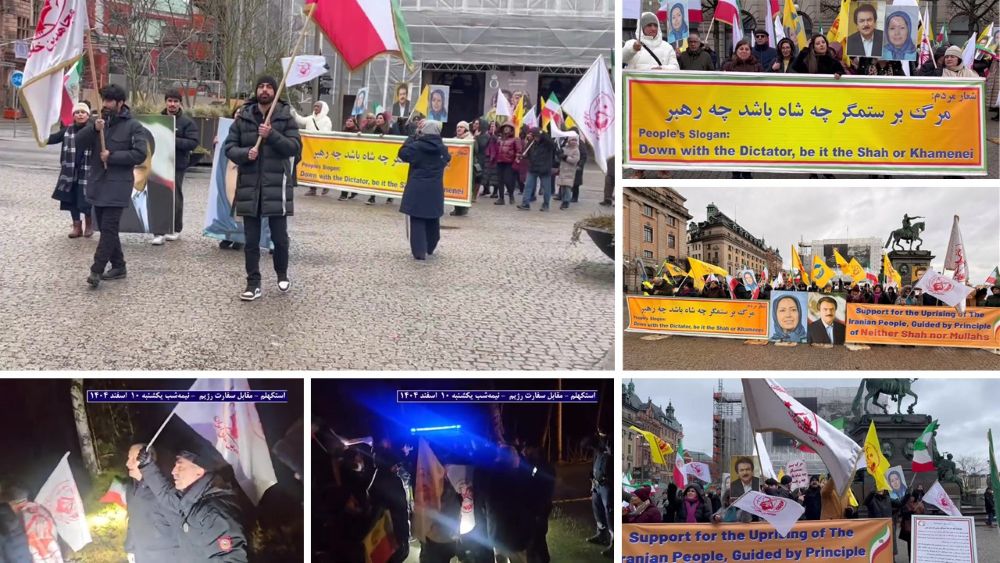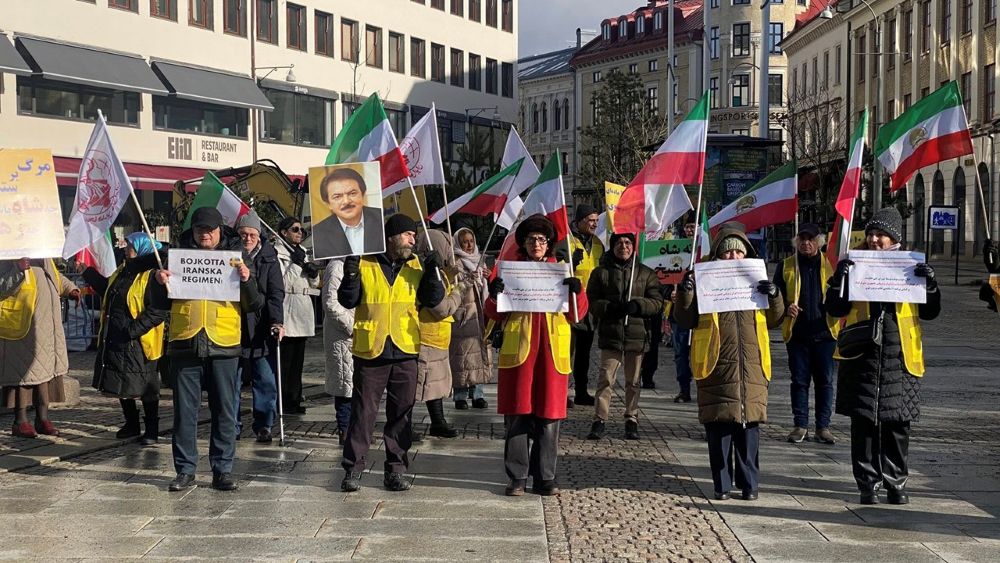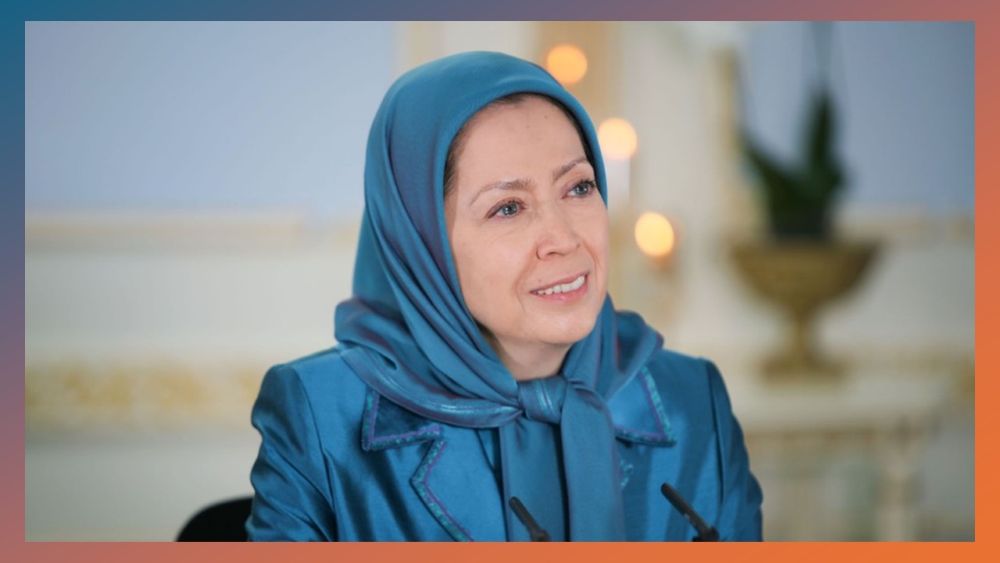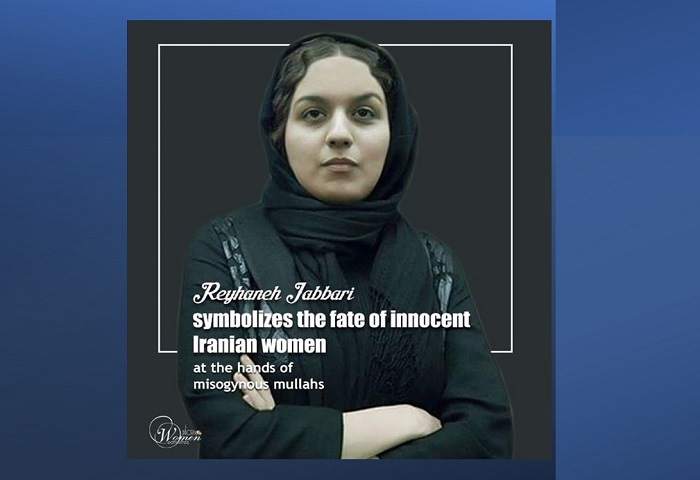
October 25 marks the 7th anniversary of the death of Reyhaneh Jabbari who was executed by hanging following seven years of being imprisoned in Iran. Since her death, she has become a symbol for innocent women unlawfully sentenced to death, and brave women who wish to fight for their rights against the brutal Iranian regime.
At the time of her death, Jabbari was 26-years-old. She had been imprisoned in 2007 after being convicted of murdering Morteza Sarbandi, a high official in the Intelligence Ministry (MOIS), when in fact she was defending herself against being raped by Sarbandi.
The National Council of Resistance of Iran (NCRI) Women Committee said, “Reyhaneh was viciously tortured to make false “confessions” which would whitewash the methods and image of the Ministry of Intelligence, but she did not give in. Instead, she wrote about the incident and about many women in the clerical regime’s jails whose only crime was being poor.”
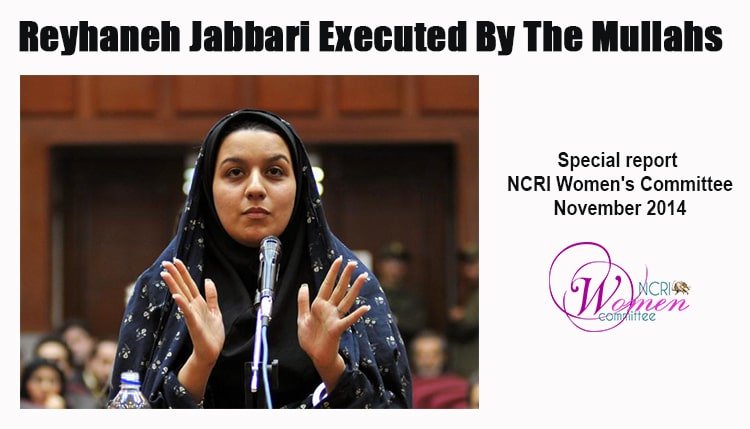
During her incarceration at Gohardasht prison in Tehran, Jabbari often wrote, portraying the oppressive discrimination women faced from the regime, especially the judiciary officials. In one of her last writings, she talked about her thoughts and feelings of her encounter with Sarbandi and her subsequent journey to being convicted for murder.
She began saying, “I am Reyhaneh Jabbari, and I am 26. I admit that I no longer care to live this kind of life. It seems to me that life is not just breathing and passing the days and nights.”
She went on to explain that she had consistently thought about the incident with Sarbandi and why it happened. The reasoning she ultimately reached was that both of their motives ‘pulled the two opposing ends of the rope of destiny’. Sarbandi’s motivation was to seek pleasure by the use of force, while Jabbari’s was to desperately escape from this coercion.
Jabbari questioned, “I am still wondering that when humiliated and insulted girls are sexually exploited, and when they do not want to be slaves, who is there for them to take refuge with? Is there a government or ordinary citizen or any responsible person to give support to such girls?”
She explained how she felt that it was her responsibility to speak out about what she had learned over the years, in society and in prison, and do what she can to help change the destiny of women in her situation.
Jabbari spoke of how the ‘male-dominated law’ in Iran only seeks to defend men, and at the age of 21, she found herself in a court surrounded by men who did not approve of her defense against Sarbandi.
She said, “They did not put themselves in my shoes even for a moment and they held the trial without paying any attention to my words and without examining the reasons listed in my lawyers’ defense.”
She recalled being humiliated by the judge during her trial, who questioned her as if she was ‘one of those women stuck in the cycle of prostitution’. Judge Tardast had told her that she should have let Sarbandi rape her before then making a complaint against him.
The NCRI Women Committee said, “Reyhaneh Jabbari’s execution received widespread coverage in world news media outlets, referring to the flagrant violation of human rights by the Iranian regime. Amnesty International condemned the execution of Reyhaneh Jabbari as ‘another bloody stain on Iran’s human rights record’ and an affront to justice.”
Rehaneh Jabbari’s message to her mother from Iran’s regime prison before her execution:

